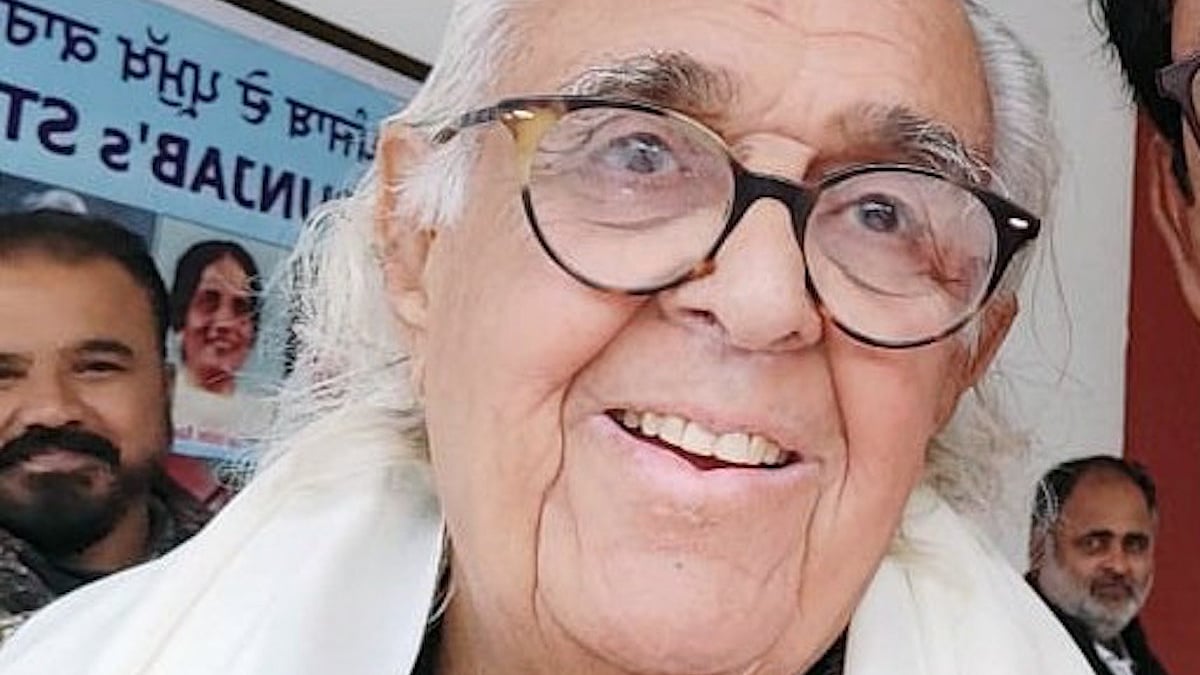Obituary
Remembering Ranbir Sinh (1930-2022): He was one of a kind
Historian, author, actor, translator and playwright Ranbir Sinh, national president of Indian People’s Theatre Association passed away on August 23 in Jaipur

At the Indian People’s Theatre Association (IPTA) national conference in Jaipur in 1992, the Lucknow unit staged the play ‘Ramlila’. Ranbir Sinh was so impressed that he summoned us again to Jaipur to stage the play at a conclave against communalism in an open-air theatre.
Some time in the afternoon on the day the play was to be staged, he received information from Lucknow that Aziz Afzal Khan’s father had passed away. Afzal was not only the secretary of IPTA-Lucknow but was also acting in an important role. Our dilemma was whether to break the news to him before or after the play. Had he so desired, Ranbir Sinh could have withheld the information from all of us till after the play. But he told us to communicate the sad news to Afzal. “I have seen him perform on stage and I am convinced that he is as strong as he is emotional. I believe he will not leave without performing this evening,” he said with confidence and cited several examples, including one of Charlie Chaplin, when actors performed even when they were in deep distress.
Aziz did take his time to absorb the news. He remained quiet for a considerable time. But when he spoke, he said he would perform in the evening before rushing back to Lucknow. He gave an inspired performance that day. Ranbir Sinh came on stage to share the tragic information with the audience and embraced Aziz. It was then that Aziz broke down and cried. It was a sight. All of us were crying including members of the audience.
Published: undefined
It was a lesson for us. A true artiste, as Ranbir Sinh believed, was committed to his art and to society. Aziz vindicated his faith and Ranbir Sinh himself was a shining example of such commitment.
I first met him in 1984 at a meeting in Delhi called to revive IPTA. While chatting he mentioned the play ‘Indra Sabha’, which was apparently staged in Lucknow in 1853. I felt embarrassed because though I hailed from Lucknow, I had no idea of this play by Agha Hasan Amanat. I was amazed at the depth of his insight and knowledge about the cultural history of Lucknow. His well researched book ‘Indra Sabha’ was published in the year 2000. But in our first meeting itself Ranbir Sinh had narrated how Amanat had lost his voice at the age of 20 and communicated only through his writing.
Between the 9th century—when Sanskrit plays flourished and were staged in public—and the end of the 18th century when Parsi Theatre made its mark, the intervening centuries were like a black hole for theatre. In his quest to understand this period, he spent years studying Parsi theatre and finally wrote a book which was published last year, when he was 92.
Published: undefined
Age was just a number for him and he wore it lightly. Last year in December he turned up at Jalandhar to attend the national executive meeting of IPTA. He spent two full days deliberating on small and major issues. Often the deliberations lasted till late in the evening and we would retire only at midnight. But the next morning at 6 am when many of us would be still asleep and others would be waiting for tea, he would be ready for the day after having his bath.
I was fortunate enough to have travelled with him frequently. But he would not allow anyone to carry his luggage. He would insist on carrying them himself. On a cold January morning some three years ago, he arrived in Jalandhar. I too was scheduled to arrive from Lucknow around the same time. A car had been sent to take us both to Kapurthala. But because of fog, my train was delayed by three hours. Our colleague insisted that he would drive Ranbir Sinh first to Kapurthala and then return to receive me. But Ranbir Sinh refused and said he would rather wait for my arrival so that the car would not have to return.
Published: undefined
Follow us on: Facebook, Twitter, Google News, Instagram
Join our official telegram channel (@nationalherald) and stay updated with the latest headlines
Published: undefined